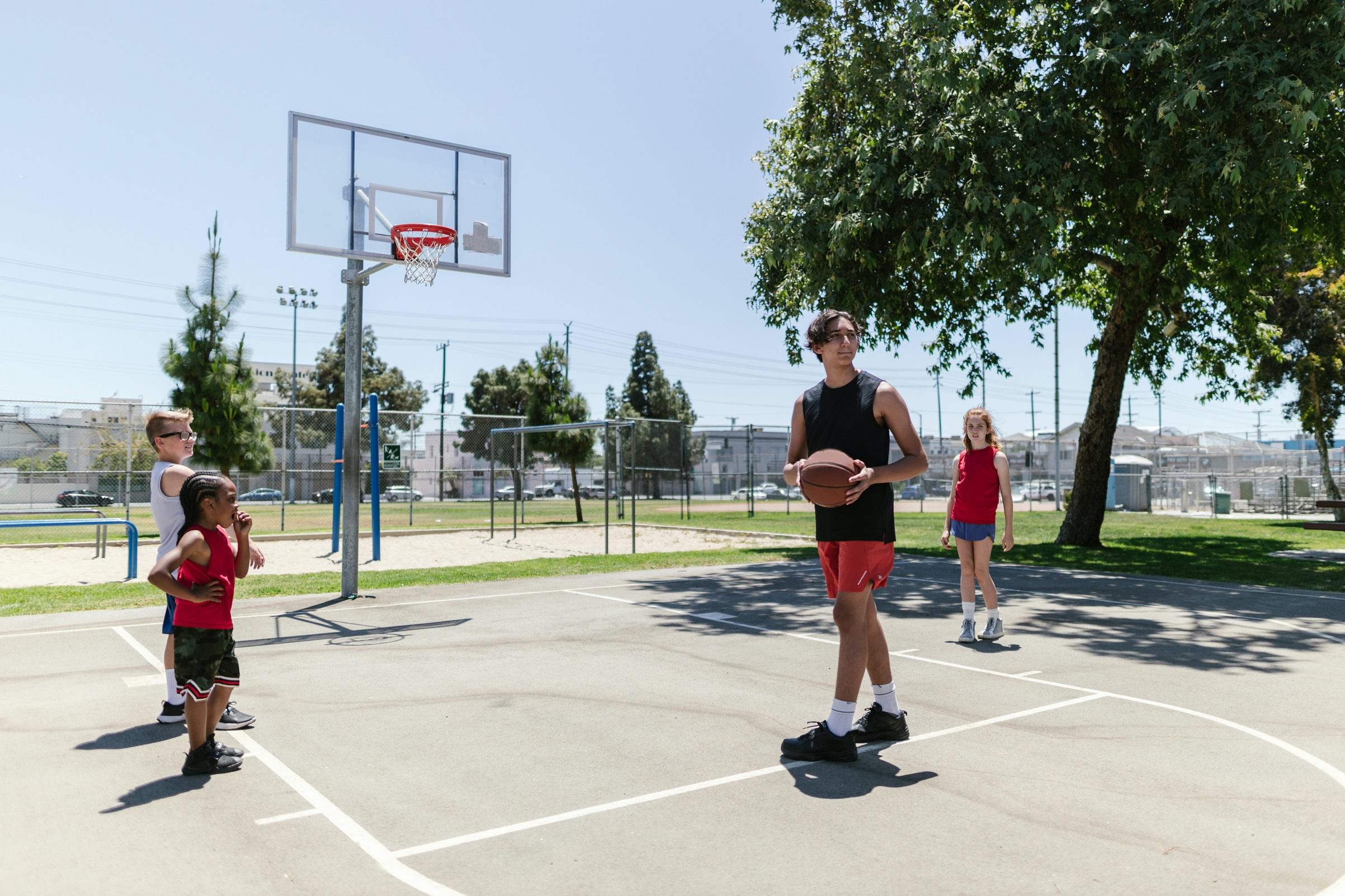- Home
- »Articles
- »Sport
- »Basketball
- »Top 5 Benefits of Playing Basketball for Children



Top 5 Benefits of Playing Basketball for Children
15 July 2023
Anything that helps children to be active is a good thing. So what can basketball give to children that other sports can’t? A lot of the benefits of basketball lie in the complete nature of the sport. Players need to have a variety of ball skills, good all-round fitness, strong tactical minds and adaptability. By playing, children can develop and improve their ability, strength, fitness levels, understanding of tactics and strategy, teamwork, leadership, and more.
Developing Balance, Coordination and Movement
There’s a strong link between physical and mental development. The physical coordination needed in basketball - such as dribbling, passing, shooting hoops - requires both sides of the brain to engage, which is great for strengthening and building neural connections. So by playing basketball, children will develop their brain, leading to strong cognitive development. Basketball develops a range of fundamental movement skills too, so basketball can help very young children develop things like balance, hand-eye coordination and lateral movements.
Getting Active
Basketball is vigorous. For 30 - 45 minutes, players are running up and down the court non-stop. There’s no letup, as each player is critical to the attack or defence strategy. It’s this that makes basketball so good for cardiovascular health. Needless to say, being so active brings other benefits, too, including a boost to mood and self-esteem through the release of feel-good hormones. There’s also research to suggest that handball sports such as basketball lead to better bone mineral density.
Learning Teamwork and Social Skills
As a team game, it goes without saying that those who play need to know how to work together. In basketball, children get the chance to build social bonds and learn what it means to work as a team towards a goal. These team interactions are positive, and very beneficial. Children will learn to speak up, make their voices heard, and recognise their own importance in the team's success. It’s a massive confidence boost that they’ll take with them into their wider lives.
Transferable Sport Skills
A lot of what children will learn and experience playing basketball can be transferred to other sports. Things like reaching for a ball at the peak of a jump can help in rugby, and the offence-defence style of play can help children understand wider tactics in team sports. The footwork used in basketball can be transferred to martial arts and, of course, the self-discipline to train and understand exercise will be beneficial to any sport.
Understanding Tactics
Basketball comes in a variety of forms. As well as the standard team matches there’s 3x3, and training can involve a variety of drills such as 2-on-1 and singles. Such variety means that children get a chance to learn how tactics and strategy can be applied in a sports setting. They can then master this; by experiencing different forms of the game, they can work out why certain tactics work when others don’t. The pace of basketball is unique, too. Few sports involve such fast-paced thinking on the spot, so children naturally develop their ability to make choices under pressure and move on from disappointment.
